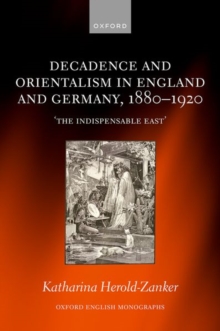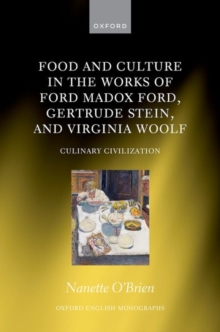
W.B. Yeats, the Abbey Theatre, Censorship, and the Irish State : Adding the Half-pence to the Pence Hardback
by Lauren (Lecturer, Institute of Irish Studies, University of Liverpool) Arrington
Part of the Oxford English Monographs series
Hardback
Description
W.B. Yeats, the Abbey Theatre, Censorship, and the Irish State: Adding the Half-pence to the Pence utilizes new source material to reconstruct the current understanding of the relationship between the productions of the Abbey Theatre and the politics of the Irish state.
This study begins in 1916, at the start of the Irish Revolution and in the midst of the theatre's financial crisis, and it ends with the death of the Abbey Theatre's last surviving founder, W.B.
Yeats. To date, histories of the Abbey Theatre have repeated Yeats's assertion that there was no censorship of the theatre in Ireland.
However, this study incorporates financial records, government correspondence, Dáil debates, and minutes from the Abbey's directors' meetings to produce surprising conclusions: censorship of the theatre did occur, but it occurred internally rather than by external means.
Yeats and his fellow directors privately self-censored plays when there was potential for financial gain, such as in the Abbey's campaign for a state-sponsored reconstruction scheme - the details of which have never been explored prior to this study.
Any attempts by the state to directly interfere in the theatre's programme were unsuccessful but were manipulated by the press-savvy Yeats in order to create profitable controversies.
Despite Yeats's vocal campaign against censorship, his organisation of the Irish Academy of Letters, and his famous speeches from the Abbey stage decrying the censorship of the 'mob', he was willing to sacrifice the freedom of the artist when he foresaw an opportunity to ensure the longevity of his theatrical enterprise.
Information
-
Out of stock
- Format:Hardback
- Pages:222 pages
- Publisher:Oxford University Press
- Publication Date:14/10/2010
- Category:
- ISBN:9780199590575
Information
-
Out of stock
- Format:Hardback
- Pages:222 pages
- Publisher:Oxford University Press
- Publication Date:14/10/2010
- Category:
- ISBN:9780199590575










